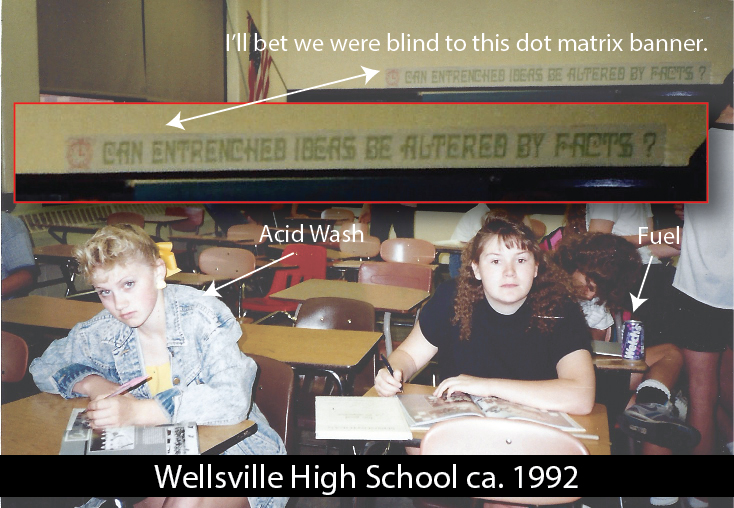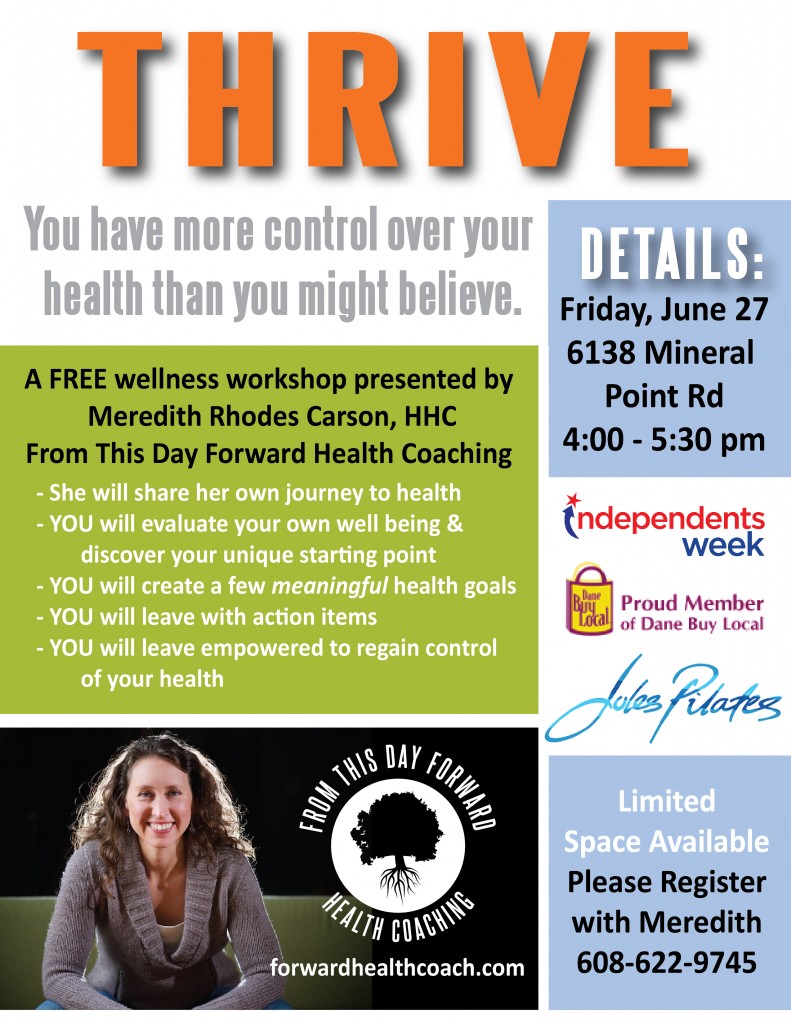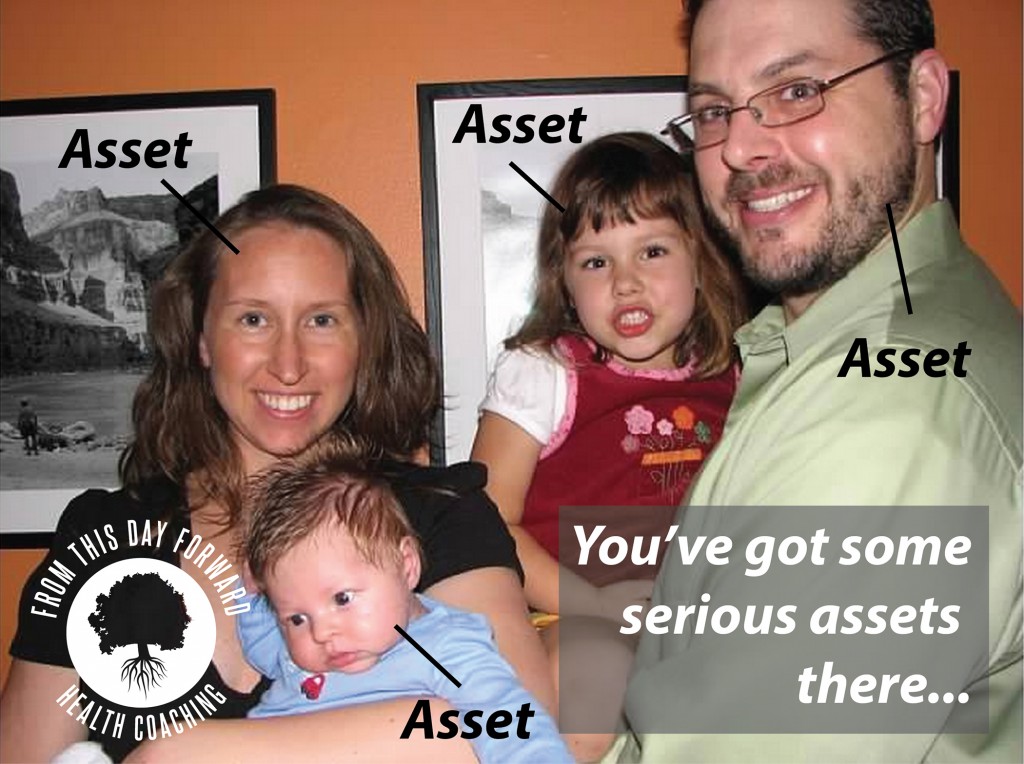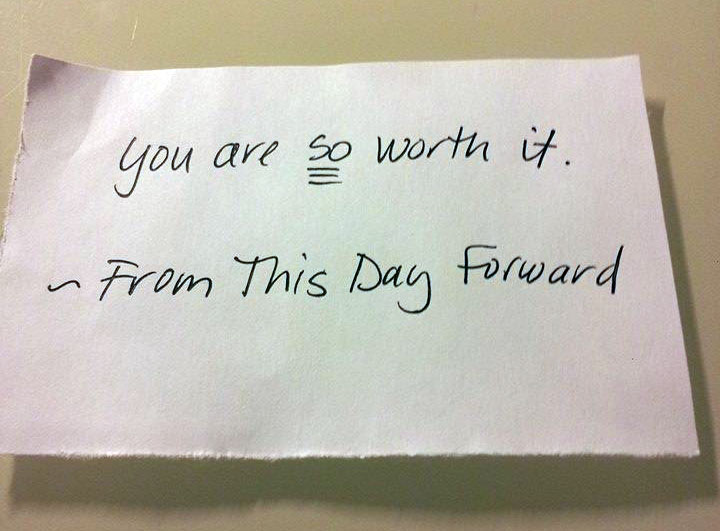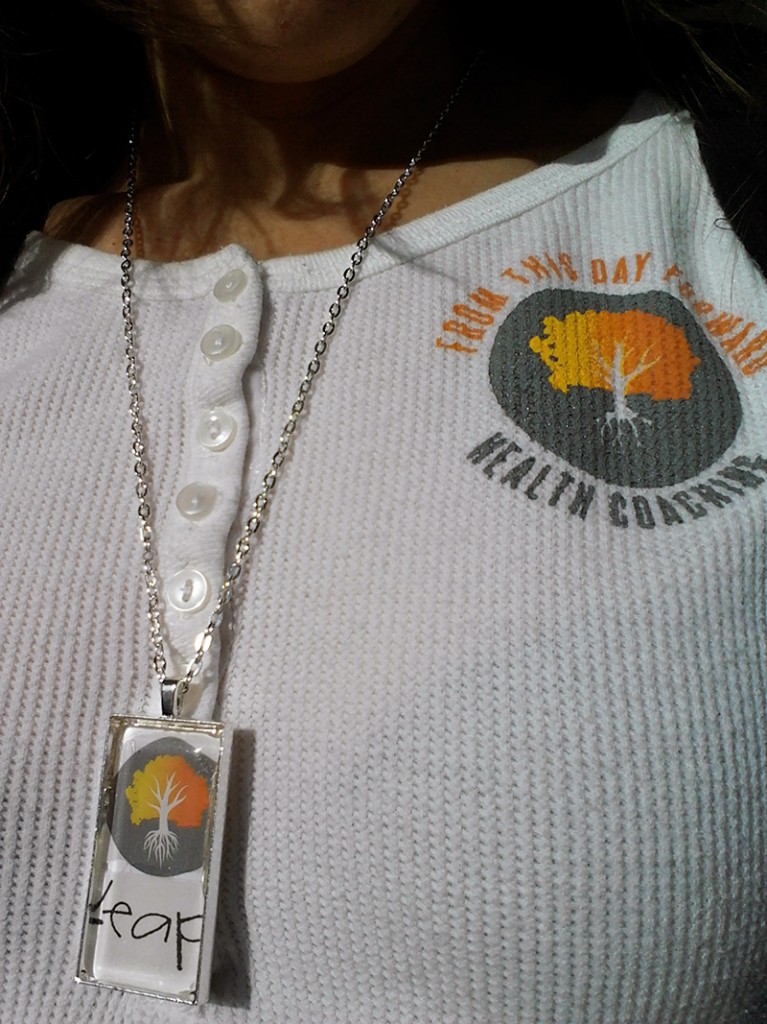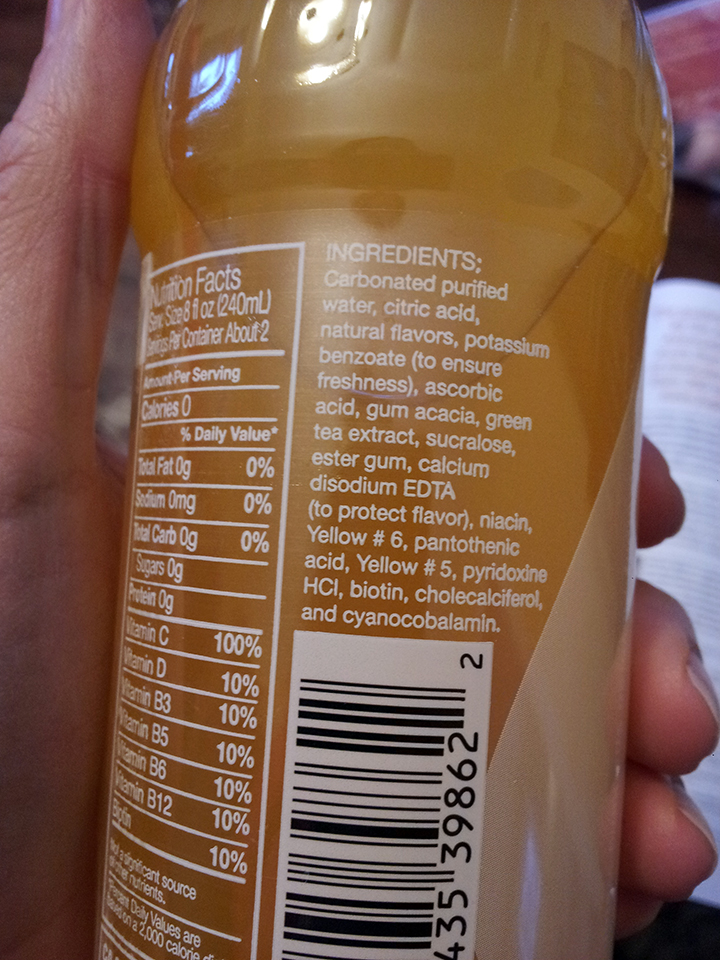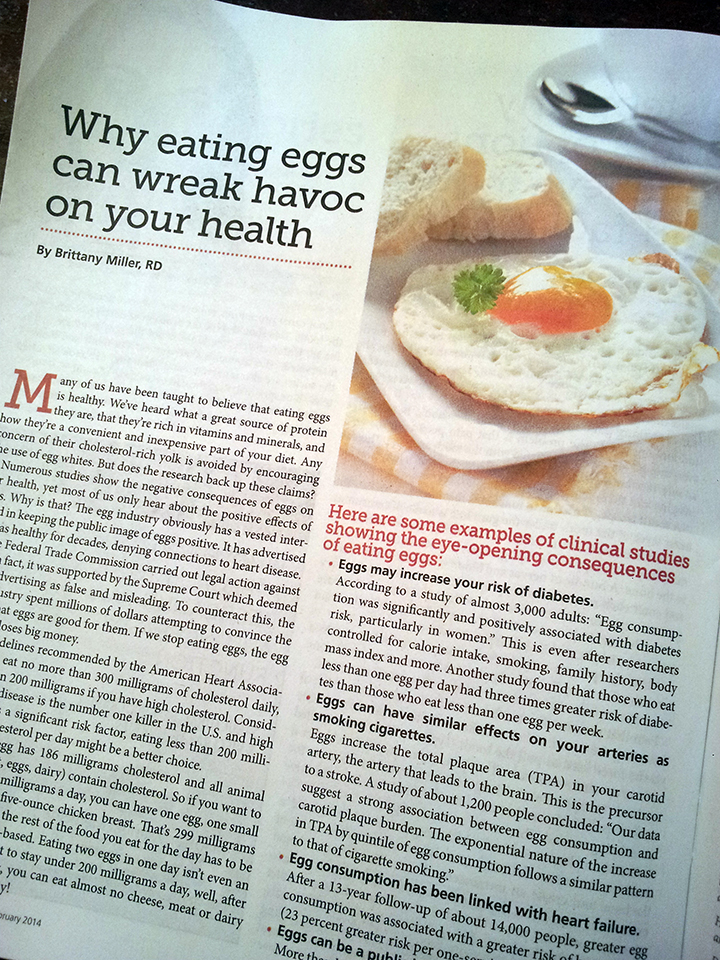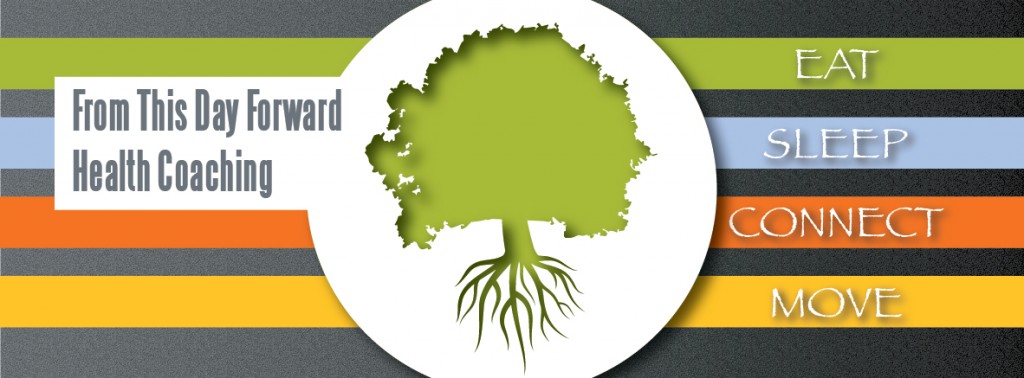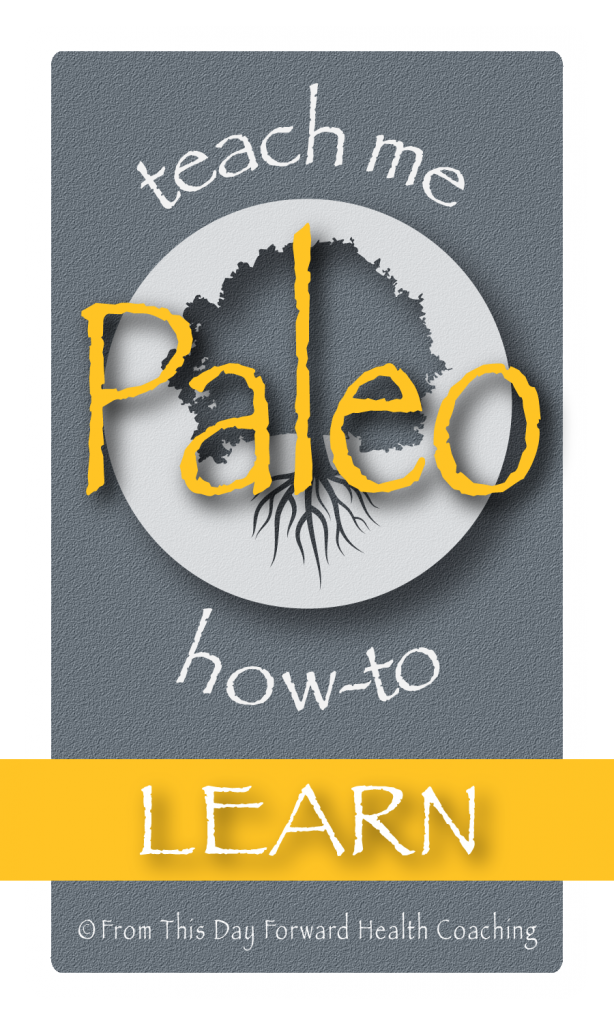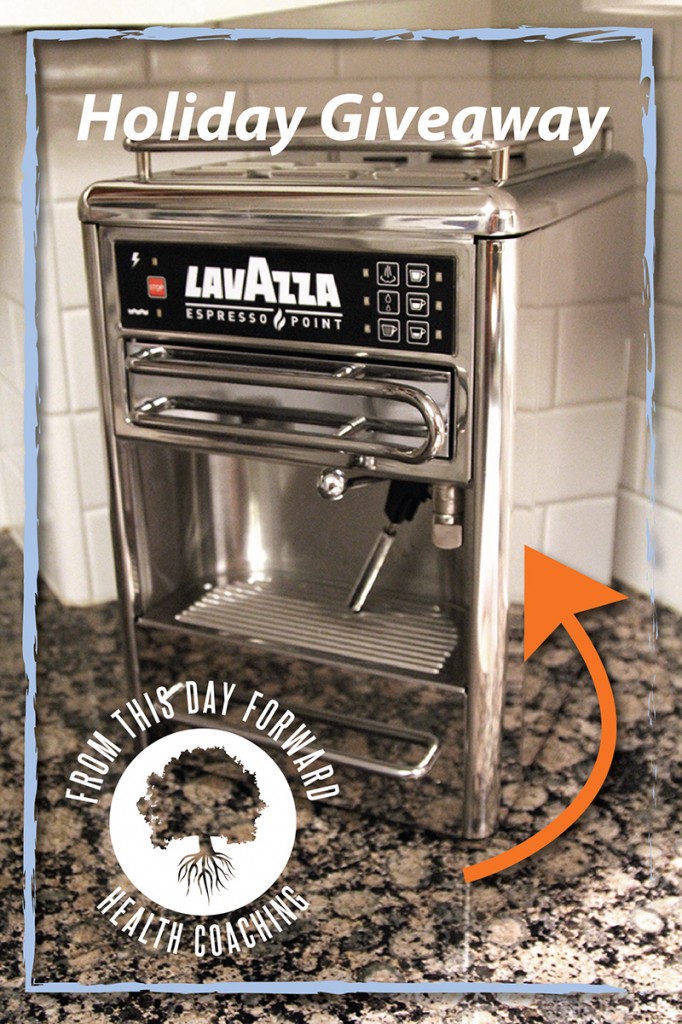I’m about to use this space to unburden my brain from the thoughts and ideas whizzing around in there. This’ll be Part 1 of 3 of such unburdening. Read Part 2 here. Read Part 3 here.
I’ve been learning about health & wellness for a few years now… like immersed in it. I follow podcasts, I read everything I can get my hands on, I track down references and draw my own conclusions from data, I spend an inordinate amount of time thinking… (time to start doing, but that’s a topic for another day). I do this in the name of curiosity and wonder and amazement and improvement and now… service to others.
But I have to admit, when you get thisclose to the health & wellness dogma out there – conventional or otherwise – it’s easy to blur the lines between was is actually fact, and what is actually just so strongly believed. I’m using these posts as a place to sort some stuff out. I’m talking out loud to my peeps here.
[Aside: I found this photo the other day – it’s a classroom in my high school – probably my senior year. The banner across the top of the chalkboard caught my eye… ]
This is the danger any human faces when they are seeking answers. We are pretty strongly wired to want to know what’s right, and then to decide what’s right based on our own experiences, and then to let everyone else know how wrong they are – because clearly, they haven’t figured out the right way. I do my best to be objective and scientific… but it’s really difficult to resist drawing conclusions ahead of the evidence sometime.
I say this as fair warning my friends… because I’m about to stitch together a story that’s been developing in my mind. A story about our ill health, our diet and lifestyle, our environment, and some likely ways forward. I’ll reference where I can – and let you know when I’m speculating. It’s my vision of what’s going down with us here in the developed world. This story takes place as a series of observations & interpretations, ’cause that’s how I roll.
Observation #1: We are not alone.
This we know. I’d say this is fact. We are not alone in our bodies – we share our bodies with our microbiome. In fact, there are estimates that 90% of the cells in your body are the bacteria, yeast, viruses, parasites etc… that make up your unique microbiome. We are just really scratching the surface in our understanding of this ‘forgotten organ’ of ours.
We know, for example, that fecal transplants – literally transplanting the poop from a healthy individual into an unhealthy individual – cure a C. difficile infection (a bug that wreaks havoc on your digestive system) 90-100% of the time – depending on the study group. This is really a slam dunk for the importance of our microbiome on our health.
People have experimented with particular bacterial communities (probiotics) to treat eczema. People experiment with parasites to treat neurological disorders and other autoimmune diseases. Researchers are now tinkering with drugs that alter a person’s microbiome to control blood sugar dysregulation. New science (on mice) suggests that the increase in metabolic syndrome (a group of risk factors correlated to heart disease, stroke, and type 2 diabetes) is correlated to a microbiome that is out of whack. Researchers are making mice obese or lean by shifting and sharing bacteria from obese or lean humans into germ-free mice.
We think that our microbiome somehow trains, strengthens, or otherwise challenges our immune system (like a vaccine does) to keep us healthy. We think that our microbiome and their byproducts can help us to create neurotransmitters like serotonin that help keep us happy – and out of depression.
There is probably oh so much more that these invisible guys do. Respect.
But, this is a frontier area of research – with serious limitations today. For example, a gut microbiome sample measured by 2 different labs identifies 2 very different communities. Shit. Literally. The very collection, handling, and processing of these samples expose them to change. Oh, and how do we know what’s a normal and healthy microbiome in a population where it’s so common to be sick? How will this information be interpreted and used? Is it safe to monkey with nature in the form of drugs that alter your microbiome – when we haven’t yet figured it out? (Perhaps a rhetorical question.)
Why manufacture drugs when nature has figured this out for us? Should we all just close our eyes, rub ourselves together, and trust in nature? This is what happens at daycare facilities day in and day out. Kids are exposed to viruses and like little vectors bombard their classrooms with it – leaving the healthy kids just a little stronger thanks to the immune challenge.
It’s clear that there’s something to this microbiome stuff… we are not alone – and we could stand to have some compassion for our non-human cells, maybe welcome a few more bacteria to the party once in a while to shake things up in there.

